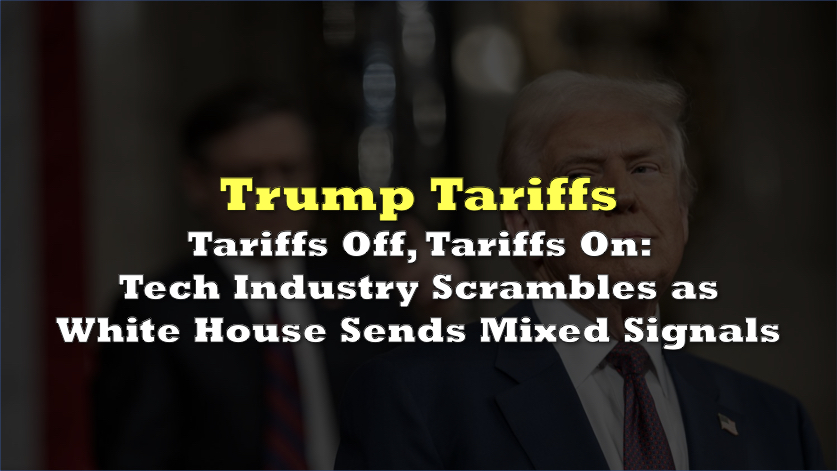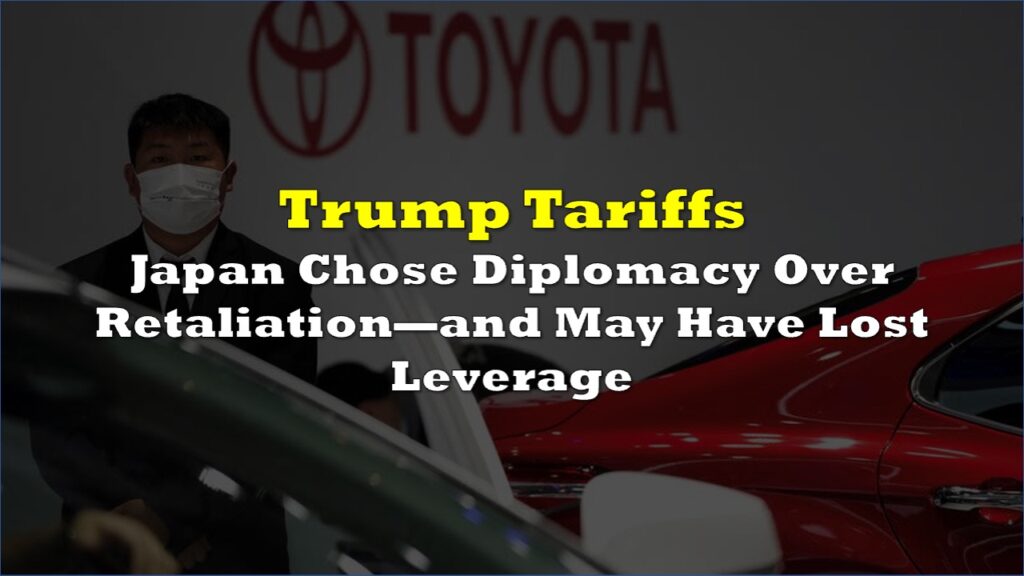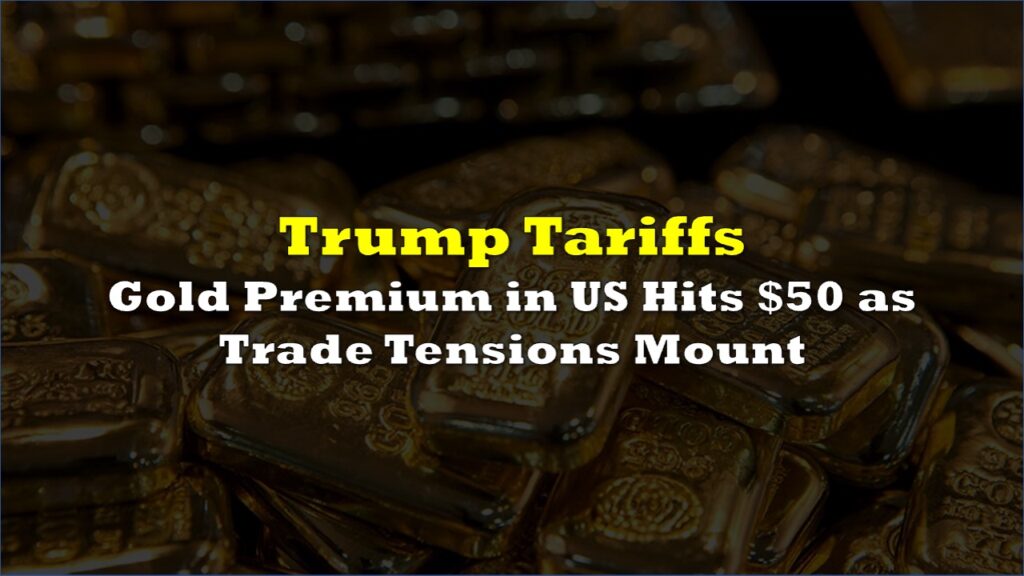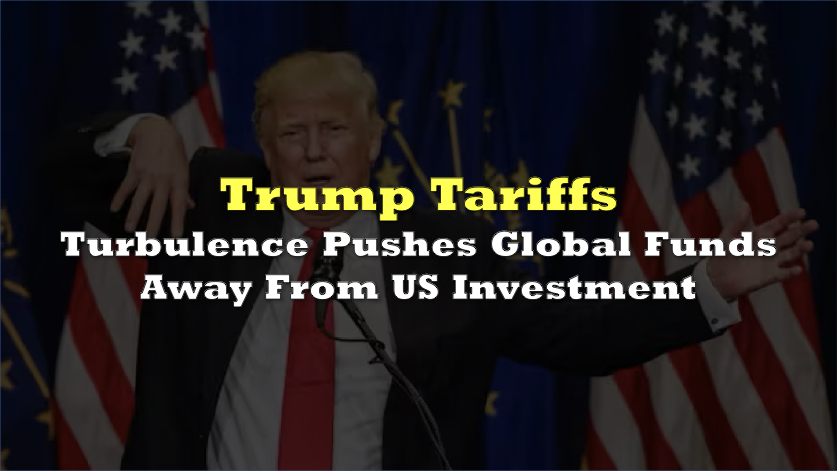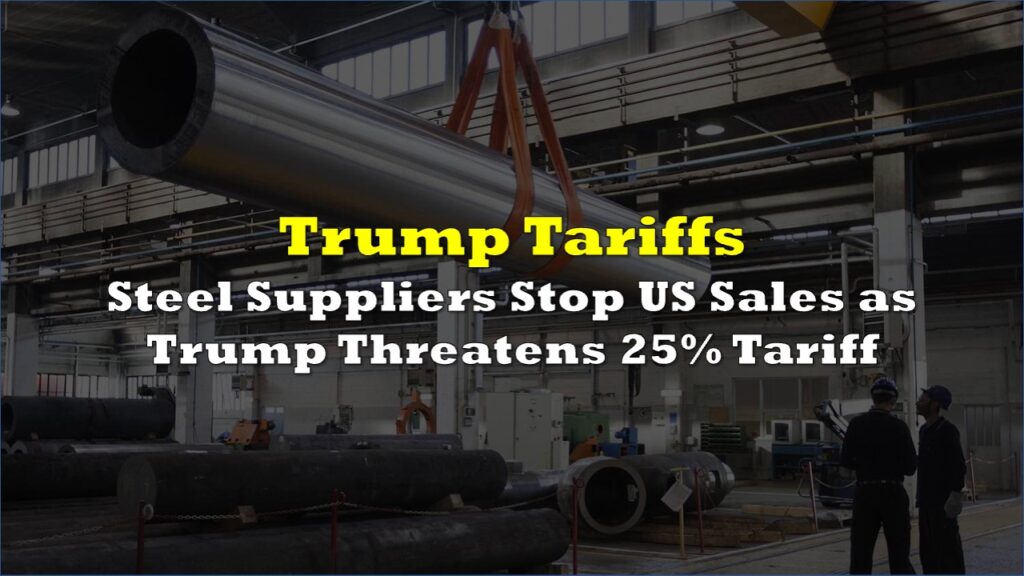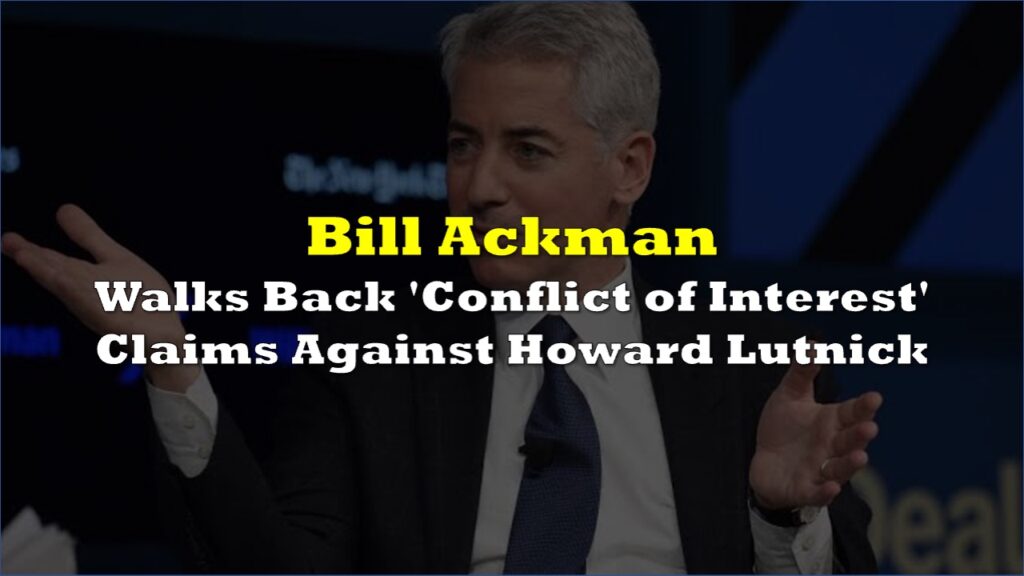Confusion reigns in the US technology sector as President Donald Trump’s administration lurches between tariff exemptions and looming new levies, leaving major electronics producers and consumers in a state of limbo.
Late Friday, US Customs and Border Protection appeared to offer a reprieve on punitive import duties for electronics like smartphones, laptops, and semiconductor equipment. But the break may be short-lived, as multiple White House insiders hint at new “sectoral tariffs” targeting the very same products.
*US PUBLISHES TARIFF EXCLUSIONS FOR SPECIFIED PRODUCTS
— *Walter Bloomberg (@DeItaone) April 12, 2025
*US TARIFF EXCLUSIONS APPLY TO COMPUTERS, SMARTPHONES
*US TARIFF EXCLUSIONS ALSO APPLY TO CHIP-MAKING EQUIPMENT
*TARIFF EXCLUSIONS APPLY TO SO-CALLED `RECIPROCAL' TARIFFS
TRUMP SAYS EXEMPTING SEMICONDUCTORS FROM HIGHER CHINA TARIFF
— *Walter Bloomberg (@DeItaone) April 12, 2025
TRUMP SAYS EXEMPTION IS RETROACTIVE TO APRIL 5
TRUMP: DUTIES SINCE APRIL 5 ON EXCLUDED CHIPS WILL BE REIMBURSED
The initial exemption was intended to shield Apple, Nvidia, and other major tech manufacturers from duties as high as 125% on Chinese imports and 10% for imports from other countries. Treasury Secretary Scott Bessent was said to be instrumental in getting Trump to back down on Chinese phone and computer tariffs, citing sources that also suggested Trump trade advisor Peter Navarro was sidelined.
BREAKING: Treasury Secretary Bessent was instrumental in getting President Trump to back down on Chinese phone and computer tariffs after multiple calls with Apple CEO Tim Cook and other CEOs. Navarro and Lutnick sidelined and Navarro likely to be fired as scapegoat – SOURCES
— Mike Alfred (@mikealfred) April 12, 2025
This is where the tariff plan starts to spiral and becomes a race of lobbyists getting exemptions and special favors… https://t.co/OSRskoVE0p
— Geiger Capital (@Geiger_Capital) April 12, 2025
“Ok so all this tells me is that electronics are exempt from the headline 145% on China but that’s only because they were already going to be tariffed under ‘sectoral tariffs’ which we do not yet know the rates of,” wrote one skeptical observer on social media.
Ok so all this tells me is that electronics are exempt from the headline 145% on China but that’s only because they were already going to be tariffed under “sectoral tariffs” which we do not yet know the rates of.
— Butters (@postboomer_) April 12, 2025
So a bit premature to be calling it totally exempt! https://t.co/oqk4xaQLzn pic.twitter.com/STUXJzJJn3
Muddling the issure, it was further relayed that semiconductor and electronic tariffs “will come in a month or so,” quoting senior White House adviser Howard Lutnick.
SEMICONDUCTOR, ELECTRONIC TARIFFS WILL COME IN A MONTH OR SO, LUTNICK SAYS
— *Walter Bloomberg (@DeItaone) April 13, 2025
ELECTRONIC PRODUCTS WILL COME UNDER SEMICONDUCTORS SECTION AND WILL HAVE SPECIAL TARIFFS COMING SOON -LUTNICK
— *Walter Bloomberg (@DeItaone) April 13, 2025
Meanwhile, Trump denied any real climbdown was ever in play. “There was no Tariff ‘exception’ announced on Friday,” he said in a post, asserting that those same products remain subject to a 20% duty tied to China’s role in fentanyl trafficking. While this lesser-known levy predates the “reciprocal tariffs,” it still ensnares a wide swath of tech imports.
On the one hand, it’ll be difficult to negotiate against the U.S. when we’re this unpredictable. pic.twitter.com/e6CHrxkOd7
— Ryan Petersen (@typesfast) April 13, 2025
Critics say the administration’s unpredictable moves risk jolting consumer prices and rattling corporate strategy. “We live in a headline & tweet news ecosystem,” commented one social media user, arguing that the flurry of announcements “merely reclassifies” electronics rather than granting true relief.
A separate 20% tariff tied to China’s alleged role in fentanyl production remains in force, further complicating the outlook for electronics. As White House Press Secretary Karoline Leavitt put it, “President Trump has made it clear America cannot rely on China to manufacture critical technologies.”
Miller notes Chinese electronics imports still subject to 20% tariff
— FinancialJuice (@financialjuice) April 12, 2025
Adding to the uncertainty is the administration’s plan to launch a fresh Section 232 investigation into semiconductor imports. While chipmakers such as Taiwan Semiconductor Manufacturing Co. and Intel are expanding US facilities, they worry unexpected tariffs on equipment imports will inflate costs, especially for machines essential to producing advanced semiconductors.
For its part, the White House defends the chaos as a calculated strategy to shore up American manufacturing.
“President Trump has made it clear America cannot rely on China to manufacture critical technologies such as semiconductors, chips, smartphones, and laptops,” said Leavitt, arguing that tech giants must “onshore” their supply chains in exchange for preferential treatment.
Trump has hinted at more decisive statements coming “on Monday.”
Breaking: Trump himself will be discussing semi-conductor tariff approach Monday
— Special Situations 🌐 Research Newsletter (Jay) (@SpecialSitsNews) April 13, 2025
Really have no idea what he will say…$SMH $MU $ASML $NVDA $AMD pic.twitter.com/prSikdZHcw
Information for this story was found via Bloomberg and the sources and companies mentioned. The author has no securities or affiliations related to the organizations discussed. Not a recommendation to buy or sell. Always do additional research and consult a professional before purchasing a security. The author holds no licenses.

